
The Border Trilogy 2 The Crossing
¥ 118 8.4折 ¥ 140 九五品
库存2件
作者Cormac Mccarthy
出版社Vintage USA
ISBN9780679760849
出版时间1995-03
印刷时间1995-03
印数1千册
装帧平装
开本32开
纸张轻型纸
页数432页
字数1千字
定价140元
上书时间2024-03-27
- 最新上架
商品详情
- 品相描述:九五品
- 商品描述
-
基本信息
Format Paperback | 432 pages
Dimensions 131 x 203 x 22mm | 312g
Publication date 01 May 1995
Publisher Random House USA Inc
Imprint Vintage Books
Publication City/Country New York, United States
Language English
Edition Statement Vintage Intl
ISBN10 0679760849
ISBN13 9780679760849
页面参数仅供参考,具体以实物为准
书籍简介
在《穿越》中,科马克-麦卡锡实现了《所有漂亮的马》的承诺,同时给我们带来了一部更黑暗、更有远见的作品,这部小说具有经典西部片不可阻挡的气势和美国失落神话的象形力量。20世纪30年代末,16岁的比利-帕勒姆抓住了一只一直在他家牧场里游荡的母狼。但他没有杀死它,而是决定把它带回墨西哥的山区。通过这次穿越,他开始了一段艰辛的、经常是如梦如幻的旅程,在这个国家里,人们遇到了鬼魂,暴力就像热闪电一样突然袭来--在这个世界上,"除了死亡所带来的秩序",没有任何秩序。无论从哪个角度看,《穿越》都是一部重要的小说,它光芒四射,令人震惊,是一本能同时触动、阻止和启动心灵的书。
In The Crossing, Cormac McCarthy fulfills the promise of All the Pretty Horses and at the same time give us a work that is darker and more visionary, a novel with the unstoppable momentum of a classic western and the elegaic power of a lost American myth. In the late 1930s, sixteen-year-old Billy Parham captures a she-wolf that has been marauding his family's ranch. But instead of killing it, he decides to take it back to the mountains of Mexico. With that crossing, he begins an arduous and often dreamlike journey into a country where men meet ghosts and violence strikes as suddenly as heat-lightning--a world where there is no order "save that which death has put there." An essential novel by any measure, The Crossing is luminous and appalling, a book that touches, stops, and starts the heart and mind at once.
作者简介
科马克-麦卡锡1933年出生于罗德岛,童年的大部分时间在田纳西州诺克斯维尔附近度过。他曾在美国空军服役,后来在田纳西大学学习。1976年,他搬到了德克萨斯州的埃尔帕索,至今住在那里。麦卡锡的小说与他从东南部到西部的移动相平行--前四部小说以田纳西州为背景,后三部以西南部和墨西哥为背景。果园守护者》(The Orchard Keeper)(1965年)获得了福克纳奖的第一部小说奖;随后是《外在黑暗》(Outer Dark)(1968年)、《苏特里》(Suttree)(1979年)、《血色子午线》(Blood Meridian)(1985年)以及《所有漂亮的马》,该书在1992年获得国家书评人协会奖和国家图书奖的虚构作品。过境》是他的第七部小说,也是麦卡锡边境三部曲中的第二部。
Cormac McCarthy was born in Rhode Island in1933 and spent most of his early stage near Knoxville, Tennessee. He served in the U.S. Air Force and later studied at the University of Tennessee. In 1976 he moved to El Paso, Texas, where he lives today. McCarthy's fiction parallels his movement from the Southeast to the West--the first four novels being set in Tennessee, the last three in the Southwest and Mexico. The Orchard Keeper (1965) won the Faulkner Award for a first novel; it was followed by Outer Dark (1968), Suttree (1979), Blood Meridian (1985), and All the Pretty Horses, which won both the National Book Critics Circle Award and the National Book Award for fiction in 1992. The Crossing is his seventh novel and the second in McCarthy's Border Trilogy.
相关推荐
-
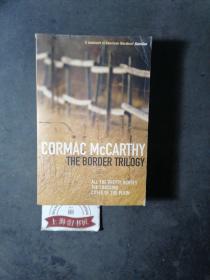
The Border Trilogy
八五品上海
¥ 120.80
-

THE BORDER(DVD)
九品北京
¥ 5.00
-
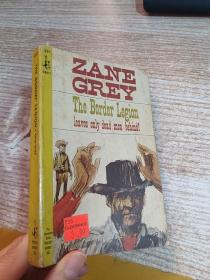
THE BORDER LEGION
八品运城
¥ 10.00
-
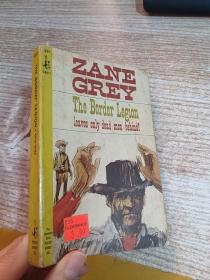
THE BORDER LEGION
八品嘉兴
¥ 10.00
-
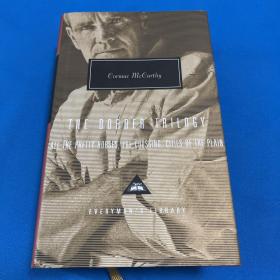
The border trilogy
全新桂林
¥ 270.00
-
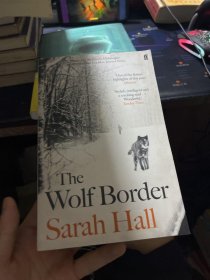
THE WOIF BORDER
九品北京
¥ 84.00
-
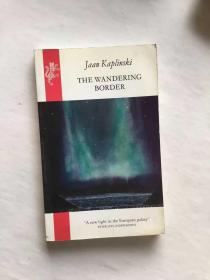
The Wandering Border
八五品扬州
¥ 230.00
-

The border trilogy
九五品石家庄
¥ 150.00
-
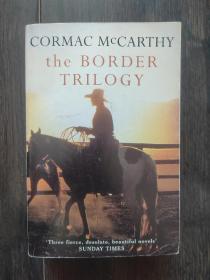
the Border Trilogy
九品廊坊
¥ 148.00
-
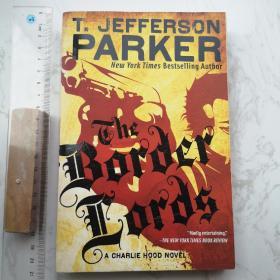
The Border Lords
九品济宁
¥ 66.00
— 没有更多了 —
















以下为对购买帮助不大的评价